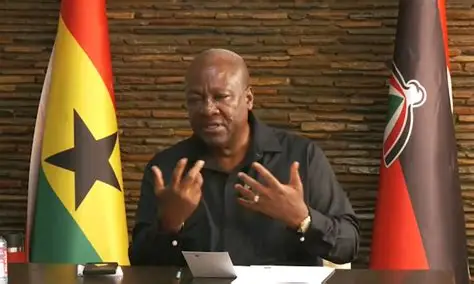Ghana has joined 16 other African countries in approving National Energy Compacts under the Mission 300 project, which is led by the World Bank and African Development Bank, and has committed to achieving universal access to energy by 2030.
President John Mahama stated that electricity is essential to Ghana’s development objectives while speaking at the Bloomberg Philanthropies Global Forum.
“Ghana believes universal energy access is key to empowering businesses, reducing poverty, and creating equal opportunities. This goal can only be achieved through strong government–private sector partnerships, supported by an enabling environment for sustainable investment.” He Emphasised.
By 2030, Mission 300 wants to provide power to 300 million Africans. Thirty million individuals have already accessed it since its introduction, and an additional 100 million connections are planned.
The Energy Compacts offer doable models for change, investment, and new policy. Ghana’s dedication is consistent with a number of bold promises made around the continent.
According to President Duma Boko of Botswana, their agreement would guarantee “accessible, reliable, and affordable energy as a basic human need” in order to promote economic change and job creation.
In order to advance renewable energy and create a low-carbon future, Cameroon’s president, Paul Biya, pledged to implement reforms.
In addition to achieving universal access, the Republic of Congo’s enormous hydro potential of 27,000 MW may be used to export excess power to meet more than one-third of Africa’s electrical needs, according to President Denis Sassou Nguesso.
Taye Atske Selassie, the president of Ethiopia, emphasized the need to increase regional power integration and unlock renewable resources.
Adama Barrow, the president of The Gambia, stated that expanding renewable energy, enhancing infrastructure, and changing governance in the industry all depend on having access to power.
Bold improvements were promised by other nations. According to Kenyan President William Ruto, a key component of his Bottom-Up Economic Transformation Agenda is access to clean power.
President Daniel Chapo of Mozambique talked about making his nation a regional energy powerhouse.
For Sierra Leone, their accord was dubbed “the most ambitious energy infrastructure initiative ever developed” by President Julius Maada Bio. Mission 300 was presented by World Bank President Ajay Banga as a historic occasion.
“Electricity is the bedrock of jobs, opportunity, and economic growth. That’s why Mission 300 is more than a target—it is forging enduring reforms that slash costs, strengthen utilities, and draw in private investment.”
“Reliable, affordable power is the fastest multiplier for small and medium enterprises, agro-processing, digital work, and industrial value-addition. Give a young entrepreneur power, and you’ve given them a paycheck.” Dr. Sidi Ould Tah, president of the African Development Bank, added.
Africa is making progress on the most ambitious electricity expansion effort in history, according to the World Bank and AfDB, with Ghana and its peers supporting the Energy Compacts.



























